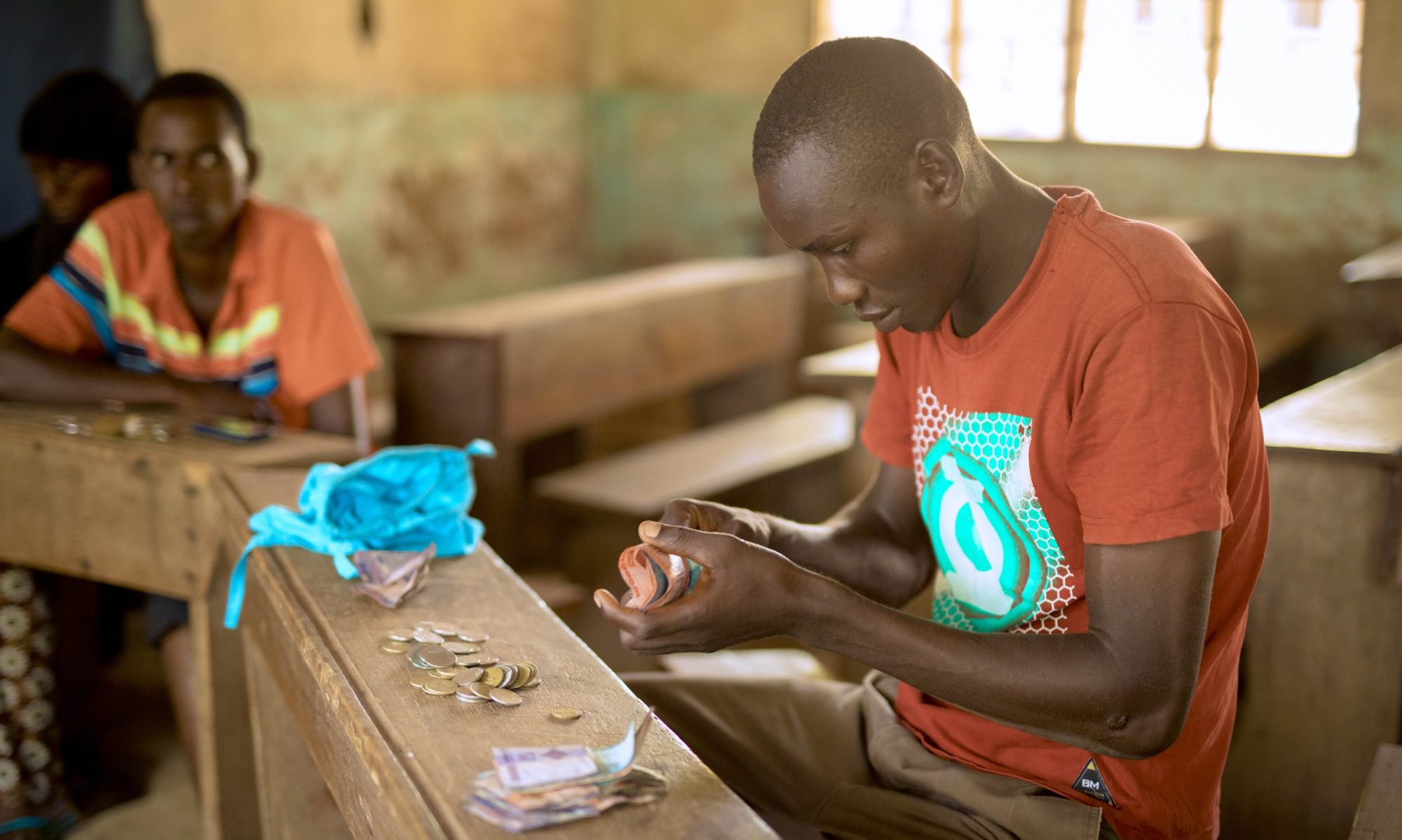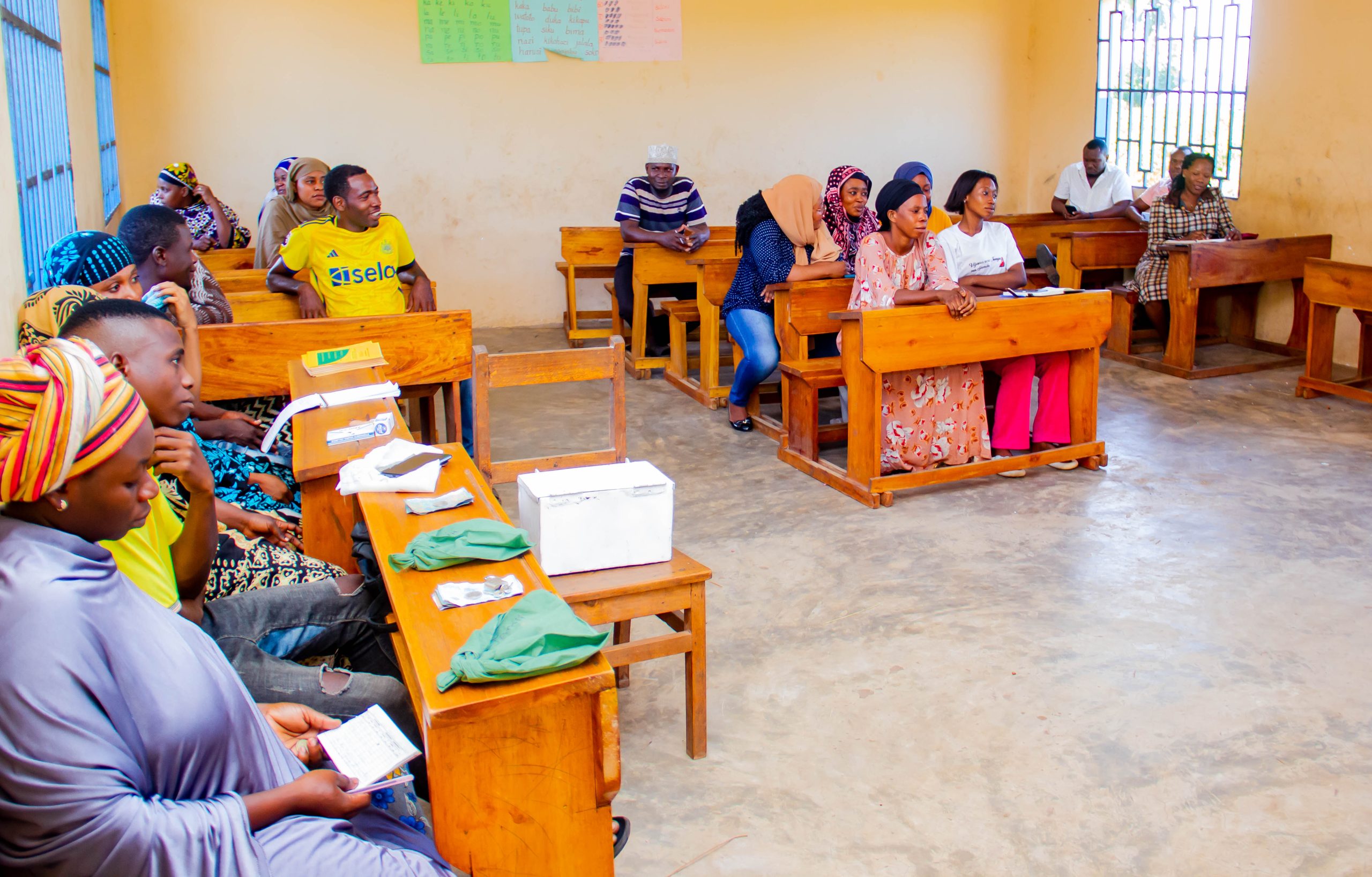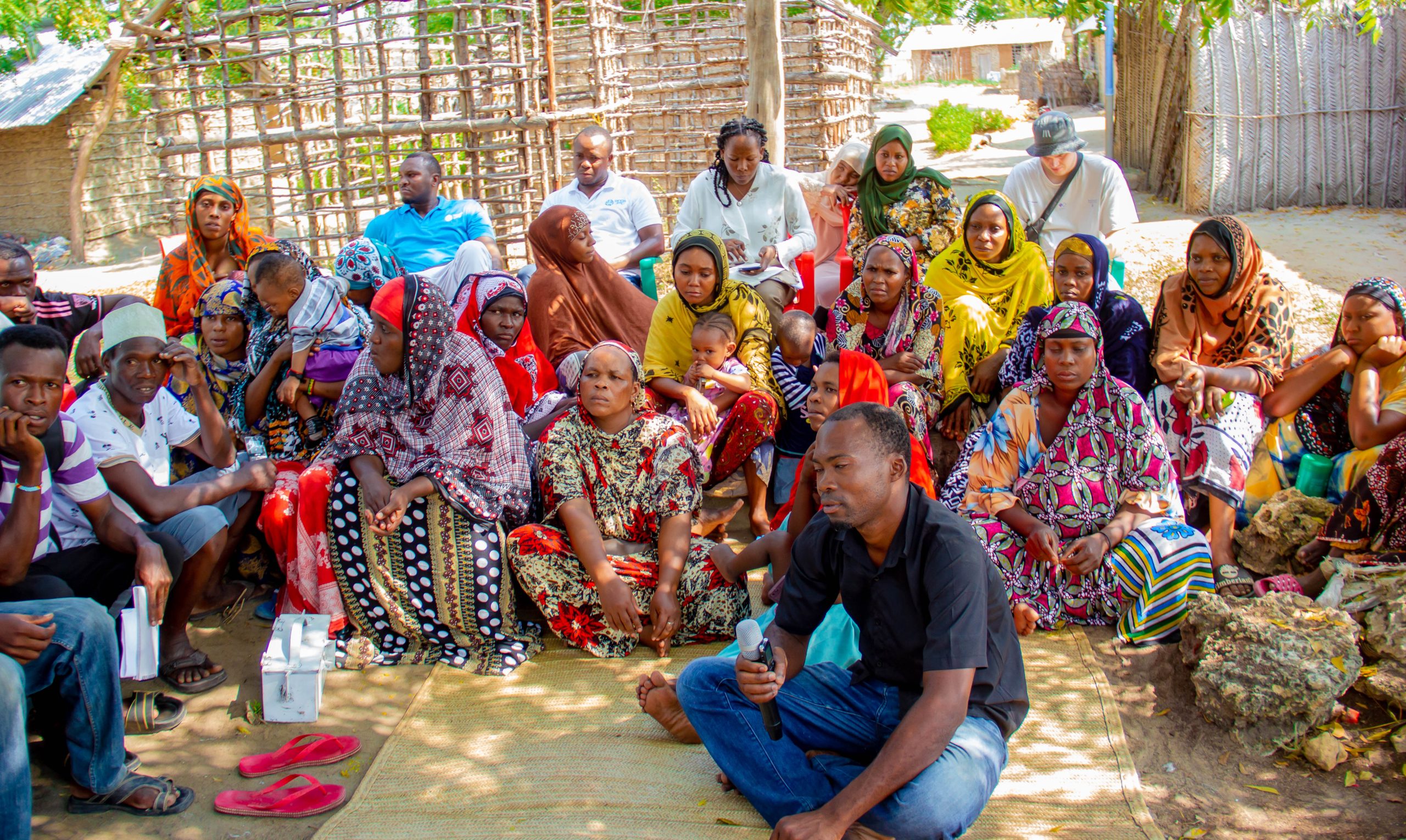
The aspirations of young people in Tanga city were often stifled not by lack of ambition, but by a lack of opportunity. Many were caught in cycles of informal labor, small-scale farming, or unsteady fishing incomes. With little access to financial systems or entrepreneurship training, savings were rare and investments nearly impossible.
“Before the training, we didn’t know where to begin,” says Time Khamisi Selemani, now a member of the TUNDAUWA Youth Saving and Lending Group. “We had ideas, but no direction.”
Across the city, thousands of youth faced similar realities: high unemployment, limited access to credit, and a prevailing mindset that placed formal jobs above self-started enterprise. In a society where access to capital and networks often dictated success, Tanga’s youth remained on the margins of economic participation.
Enter the Mindset Change and Entrepreneurship Project, a core part of the TangaYetu Initiative led by Reconstructed Living Lab (RLabs). The project sought not just to train youth in entrepreneurship, but to shift how they viewed themselves and their potential.
The approach was comprehensive. It began with a baseline survey to assess local business opportunities suitable for youth. Then came GROW leadership workshops, entrepreneurship bootcamps, digital skills training, and structured Youth Saving and Lending sessions.
Out of this emerged community-rooted financial groups like Karange One and TUNDAUWA. The goal was simple yet profound: build youth-led, youth-owned financial ecosystems.
“We started by saving as little as 100 shillings,” recalls Halima Ally Bughe, one of the facilitators. “But what they gained was far more than money—they gained belief.”
The TUNDAUWA group now has 21 members—16 women and five men, who contribute earnings from small-scale farming, fishing, and entrepreneurship. These funds are loaned internally, helping members invest in ventures like cassava farming and fish ponds. The model emphasizes consistency, trust, and community capital.

Karange One took a similar path. Weekly contributions fuel loans that members can use to expand businesses or meet family needs. “I used the group loan to build a semi-modern house,” says Jafari Shali Rashidi, the group’s secretary. “Another loan helped me grow a second group, Kijibweni One.”
The shift has been dramatic—and deeply personal.
For Asia Mmaka Ramadhani, treasurer of Karange One, it’s about more than money. “Our strength lies in unity. Together, we invest our small savings today to build a safety net for tomorrow,” she says. “When life happens, we have each other.”
Members like Fatuma Mwidadi Gau turned small loans into scalable ventures. She bought a freezer and began producing and selling ice cream and juices. Amina Ally, another member, used her capital to expand her shop and educate her children. “This group has been a game-changer,” she says.
But perhaps the most profound transformation has been in mindset. What began as training sessions evolved into local economies. Groups that once relied on external aid are now building their own resilience, one contribution at a time.

The numbers echo this shift: over 1,036 youth reached; hundreds of small businesses launched; thousands of Tanzanian shillings circulating in internal group loans. These are not just data points—they are building blocks of a more equitable economy.
The success of Karange One and TUNDAUWA offers a powerful insight: that economic development starts with belief—in oneself, and in the collective power of a community. It’s a reminder that financial systems don’t have to be complex to be effective—they just have to be rooted in trust.
As the TangaYetu program enters its second phase, its model of youth empowerment offers a compelling case for replication across Africa’s cities: empower the youth not just with skills, but with the systems and space to thrive.
“When young people are equipped with tools, knowledge, and a shared vision,” says project facilitator Halima, “they do more than build businesses. They build futures.”